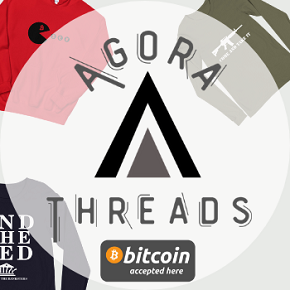
Peer-to-Peer Lending: A Real World Agorist Solution
For hundreds of years, money lenders have been viewed in a poor light, often for good reason. Lenders were essentially a cartel that controlled interest rates and allowed a narrow set of conditions in which loans would be made, all while being protected by political powers. This left many — if not most — people without alternatives other than borrowing from friends and family, which comes with its own host of problems; families to become estranged or friendships lost, though the loan was made with the best of intentions on the part of both parties.
Fortunately, this situation has been changing over the last decade or so with the creation of peer-to-peer lending. Peer to peer lending, often called “micro-lending” has radically changed the lives of millions and serves as a great example of how we as individuals can create alternatives to the government and government protected systems with the goal of individual progress and freedom in mind.
What is peer-to-peer lending? The concept is very simple. A person needs some start-up capital, or capital for expansion, so they ask if anyone is willing to loan that capital to them. Think of it as crowd-sourcing loans. These loans are like any other loan except that there is no bank or financial institution involved. With the help of a website, individuals loan directly to other individuals. Very often these requests are very modest and come from poor third world countries where small amounts can make huge differences in the lives of the persons there. For example, say that I lend $25 USD to someone in China who wants to start a business selling water. That person then uses that money to buy the bottled water, which he sells and repays the loan while making enough profit to buy more water and keep going. These people are so motivated to improve their lives that they have a good record of repaying the loans and making a success of their business.
As a rule, the amounts of these loans are too small to be of interest to traditional financial institutions, are not backed by collateral, or requests come from areas in which there simply are no financial institutions available to would be borrowers. Because the loans are often so small, governments have also not seen these as a threat to their power and so left micro-lending largely alone. In this way micro-lending bypasses the financial and governmental sectors to create voluntary solutions to real world problems and opportunities. Micro-lending also allows for loans for those who either cannot get a loan traditionally by allowing those who are less risk adverse to take chances on people with no credit or poor credit.
Loans can be based on compassion, earning no interest, or can be interest-based loans, currently ranging from about 6% to almost 40%! For the lender this can be a great boon. With traditional banks paying only a tiny fraction of a single percent in western economies, micro-lending can pay dividends far greater than savings, while minimizing the risk because of the small amounts at stake. In addition to creating opportunities thus far unknown for the borrower, peer-to-peer lending creates investment opportunities for many who could not afford to invest in the modern investment markets. Those of us of modest means can invest and make our money work for us, while helping to promote small business and financial independence, both advantageous for agorism.
Websites like Kiva, Prosper, and Lending Club have been making micro-lending possible for individuals in primarily third world countries for several years now. These loans may be from one individual to another or may be aggregated to lend greater amounts. These have proved a great success by all accounts. Individuals are given an opportunity to buy goods or materials necessary to pursue a path that they believe will set them up for financial gain. These have grown in our overly regulated world and still have proved successful, which tells us of the enormous power of peer-to-peer lending.
Modern technology has made peer to peer lending not only possible, but easy. No longer does the person in need of a loan need to go begging at a bank, where often their needs are too small for the bank to be bothered with. Now a borrower can openly ask anyone and everyone for a loan, telling their story and their idea. Those who want to help, or those who see an opportunity can decide to lend as they see fit. The result is a perfect example of how agorism can work, even in the world we have today where every action is regulated and controlled in some fashion.
Micro-lending has implications for minimum wage laws as well. Instead of searching for a minimum wage job, from which almost half of the potential income goes to taxes, an entrepreneur could get a crowd sourced loan to immediately pursue his business idea. This could spell a new burst of small businesses, which in turn could grow the economy. Minimum wage could become irrelevant as those who have business ideas would be voluntarily removing themselves from the employment market, increasing demand for employees. This in turn could raise wages naturally without any government intervention.
The bad news is that governments are starting to see the potential of peer-to-peer lending and so have begun regulating it. In 2017 China acted to regulate micro-lending after this market was projected to reach 2.7 Trillion yuan by 2020. Regulations restrict who may loan money to only those licensed by the state, thus destroying any local micro-lending industry in China.
Other governments are also acting to limit the ability of people to receive and make micro-loans. However, the idea is too powerful to be stopped entirely. With the growth of bitcoin and crypto currencies we will see micro-lending go “underground” out of the sight of these would be regulators.
For agorists, however, this has been a success story, perhaps even proof of concept itself. A problem/opportunity existed, and individuals created a solution that is not only practical, but entirely voluntary as well, all without and in some cases in spite of governmental influence.









